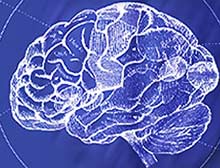
"WASHINGTON (Reuters) - The U.S. government discriminates against blind people because American currency is not designed to be distinguishable to visually impaired people, a federal judge said on Tuesday...
Welcome to the Center for Disability Resources Library Blog! Here we will welcome your comments and suggestions about books and videos that you have borrowed, materials that you would like to see purchased, or anything involving the day-to-day operations of the library or even of disabilities in general. Visit the CDR Library's web site!




Ivanhoe Broadcast News(Murfreesboro, TN)

"Report Challenges Theory That Condition Is Limited To Specific Regions
(WebMD) New research is challenging the long-held belief that autism affects only those regions of the brain that control social interaction, communication, and reasoning — suggesting, instead, that the disorder affects the entire brain. The government-funded study found that even highly functioning autistic children had difficulty when asked to perform a wide range of complex tasks involving other areas of the brain. This suggests different parts of the autistic brain have difficulty working together to process complex information. This may be the driving component of autism, the researchers say. "

 THURSDAY, Sept. 7 (HealthDay News) -- "A visual aid invented by U.S. scientists may help improve vision and mobility for people with tunnel vision."
THURSDAY, Sept. 7 (HealthDay News) -- "A visual aid invented by U.S. scientists may help improve vision and mobility for people with tunnel vision." "The study found that the device -- which combines a tiny camera, a pocket-sized computer and transparent computer display mounted on a pair of glasses -- significantly increased the effectiveness and speed with which visually impaired people were able to find objects."
To view this entire article, please click the title above.